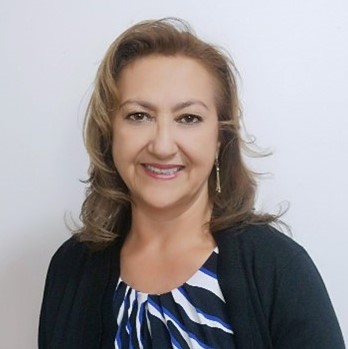
Understanding Immigration Status Issues in Child Welfare
Dealing with immigration issues can be very complicated. Since CWICE launched its training, workers and foster caregivers have shared some of their experiences when working with children and youth in out-of-home care without immigration status and the challenges they faced before CWICE existed.
In training, we have heard cases of youth exiting out-of-home care without having their immigration status issues resolved and, unfortunately, they went on to live their life in Canada with unresolved immigration status and faced many challenges and barriers. We also heard about young adults who exited care and were later deported from Canada due to a lack of immigration status. This was unfortunately the reality before CWICE was created.
Children and youth often did not chose to come to Canada. The decision is often made by their caregivers. If children are in the care of a child welfare agency, then it becomes the agency’s obligation to explore and address any status issues before the child exits care. However, to do this we need to identify the issues and understand the different types of immigration status and the pathways that can lead towards permanent status in Canada. Addressing immigration status issues are an important part of case planning. If these issues are not resolved, the consequences can be very detrimental in the life of the child. We know that child welfare practitioners are well trained in child welfare practice, however there is a need to learn about systems and processes that impact service delivery when working with immigrants, refugees, temporary residents, people with unresolved status, or those that lack identity documents to prove their permanent residence or Canadian citizenship status.
To build capacity across the child welfare sector, CWICE launched an eight-course certificate training program for child welfare professionals, and one course geared specifically for Foster Caregivers. These training courses were developed to raise awareness about the intersection between child welfare and immigration. Through training, CWICE aims to build knowledge and understanding of immigration streams, federal partners and immigration status’ in Canada. As well, we want to increase skills in building equity practices and early identification of unresolved immigration, settlement, and integration issues and enhance the knowledge of CWICE services.
CWICE strives to reach equitable outcomes for all children, youth and families receiving services from the child welfare sector. We want to ensure that families are connected to the right support services, at the right time, that child welfare agencies have a plan to regularize immigration status for all children and youth in out-of-home care. The goal is to help youth prepare for independence so when they exit care they are able to fully integrate into Canadian society, and have access to the same supports as Canadian born children. These objectives are consistent with the Ready, Set, Go transition made earlier this year, as part of the overall child welfare redesign in Ontario.
CWICE launched the CWICE training certificate program in 2020. To date, child welfare professionals from 11 organizations across three provinces (Ontario, Nova Scotia and Saskatchewan) have joined the training. The certificate program has received very positive feedback, yet there is still the need to reach all agencies and all child welfare professionals to ensure consistent changes.
Each training course has an evaluation component, and participants are asked to share what they learned in the training that they will implement in their practice. Below are a few examples of the responses we have received. The responses speak for themselves; those that have completed the training emphasize the importance of understanding the complexities of these issues, and the impact when these issues are not addressed.
“The presenters are so knowledgeable, and I think should give some social workers the peace of mind that there are folks out there (CWICE) who can help and offer guidance when we are presented with a challenging issue involving immigration.”
“The training is excellent and should be a mandatory training for all front-line protection workers and supervisors.”
“I think that a lot of CPW (Child Protection Workers) would not understand the impact of applying for refugee status on families, and how it could also impact parenting, and relationships in the family. This is a very stressful process especially given what a family may have already gone through just to get to Canada. It is important for us to know this so that we can better support the overall well-being of families we work with, and to connect families to support and services as they go through this process.”
“Thank you to the trainers for their passion and enthusiasm. It was heartfelt. They are definitely knowledgeable and an asset in this field. There was a lot of info, a lot is hard to retain, but we know who to call if we need them!!!!”
About the author

Claudia Obreque is a child protection worker and immigration specialist at Peel CAS in the Child Welfare Immigration Centre of Excellence. She holds a Master of Social Work (MSW) and has over 30 years of experience working in the social services sector. Claudia co-led the CWICE training curriculum development as a subject matter expert and is the lead trainer for the CWICE certificate program and Foster Caregivers Training.
